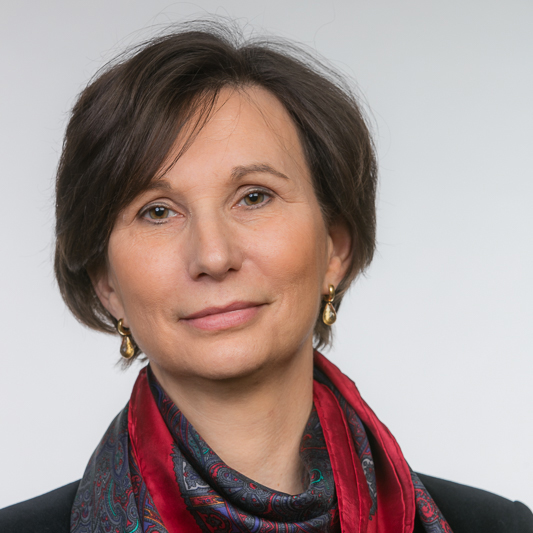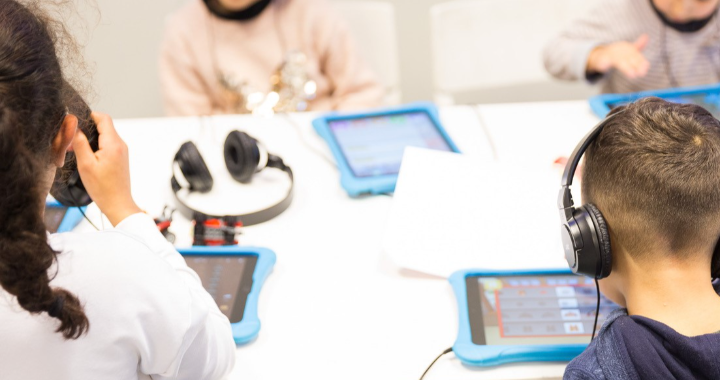The King Baudouin Foundation’s ‘Digital Inclusion Barometer 2022’[1] has revealed a worrying trend: between 2019 and 2021, the number of Belgians at risk of digital exclusion rose from 40% to 46%. Digitalisation is advancing at lightning speed, and the digital divide is only widening. Digital exclusion does not only affect vulnerable groups, but occurs in all strata of society in Belgium.
Four real life stories
Starting today, DigitAll is launching an awareness campaign to make the digital divide more visible among a wider audience. DigitAll is an ecosystem of companies, organisations and government agencies working together to promote digital inclusion in Belgium. The growing number of organisations involved in the initiative currently stands at 100, up from just 70 a year ago.
'When people are excluded digitally, they are excluded from society. It's like missing a key to enter a house,' says Telecoms Minister Petra De Sutter. 'And yes, it is about so much more than not having a laptop or smartphone as Chantal, Sura, Yousra and Stijn confirm. Their brave testimonies show that digitalisation goes so much further. It is a battle for equality and inclusion.’
The awareness campaign tells the story of four people whose lives and rights have been directly affected by digital technology. They agreed to testify and tell their stories.
Chantal sees her right to healthcare affected by the difficulties she faces in using digital tools to book a doctor’s appointment, get her results and communicate with her health insurance fund.
Sura, whose innocent photos of herself were stolen from her social media profile and used on other sites without her knowledge.
Yousra had to fight for her right to education for a long time. Without a computer, she had to do her homework and school assignments on her mobile phone. This was especially difficult for her final paper, which was 80 pages long.
Stijn did not have the skills to apply online, nor did he have sufficient knowledge of the programmes required for the job, and so his right to work was directly affected.
Of course, it is not just about raising awareness. “All participating organisations will also communicate about what actions they themselves are taking to promote digital inclusion,” explain Linde Verheyden and Catherine Bals of DigitAll. “They do this, for example, by providing information, organising training and making resources available.”
Laurent Loncke, General Manager Retail Banking at BNP Paribas Fortis: “The digital world is developing at lightning speed and occupies an increasingly important place in our daily lives. That is why we think it is important to participate in this important social challenge through DigitAll: how do we get as many people as possible on board and how can we still offer a good service to the digitally inactive Belgians? DigitAll’s broad network enables us to realise projects with a high impact.”
Digital exclusion is a threat to human rights
The King Baudouin Foundation study mentioned above shows that digital exclusion has several causes. Lack of technological means or the necessary skills are the most obvious ones.
The Corona crisis has accelerated digitalisation. It was useful for those who were already on the digital train, but less so for those who did not have access to it or did not have the skills and were excluded from interacting with society and exercising their human rights.
According to the study, inadequate access to the Internet remains an important factor. It is not only about the quality of technological resources, but also about the quality of access to the Internet, in particular the network or environment. Furthermore, our digital skills are under pressure due to the high demands of digital technology. There is a need to constantly update acquired skills. Interestingly, digital skills are also declining among young people. In 2022, 33% of young people aged 16-24 had weak overall digital skills (compared to 21% in 2019).
The situation is also worrying among job seekers. More than half (52%) of them have weak digital skills, a figure that rises to 74% for low-skilled jobseekers. For example, using email or word processing is not a natural skill. 46% of the unemployed do not use a word processor even though it is necessary when applying for jobs, which are often done online.
Linde Verheyden and Catherine Bals: “The findings and figures in the study have to make everybody aware that the digital divide is not linked to age or social background. It can affect anyone. With this campaign, we want to raise awareness of these issues among the general public and encourage organisations and individuals to take action.”
More info on DigitAll: digitall.be/
BNP Paribas Fortis (www.bnpparibasfortis.com) offers the Belgian market a comprehensive range of financial services for private individuals, the self-employed, professionals, companies and public organisations. In the insurance sector, BNP Paribas Fortis works closely, as a tied agent, with Belgian market leader AG Insurance. At international level, the Bank also provides high-net-worth individuals, large corporations and public and financial institutions with customised solutions, for which it is able to draw on the know-how and international network of the BNP Paribas Group.
BNP Paribas (www.bnpparibas.com) is the European Union’s leading bank and key player in international banking. It operates in 68 countries and has more than 193,000 employees, including nearly 148,000 in Europe. The Group has key positions in its three main fields of activity: Retail Banking for the Group’s retail-banking networks and several specialised businesses including BNP Paribas Personal Finance and Arval ; Investment & Protection Services for savings, investment and protection solutions ; and Corporate & Institutional Banking, focused on corporate and institutional clients. Based on its strong diversified and integrated model, the Group helps all its clients (individuals, community associations, entrepreneurs, SMEs, corporates and institutional clients) to realise their projects through solutions spanning financing, investment, savings and protection insurance. In Europe, BNP Paribas has four domestic markets: Belgium, France, Italy and Luxembourg. The Group is rolling out its integrated retail-banking model across several Mediterranean countries, Turkey, Eastern Europe as well as via a large network in the western part of the United States. As a key player in international banking, the Group has leading platforms and business lines in Europe, a strong presence in the Americas as well as a solid and fast-growing business in Asia-Pacific. BNP Paribas has implemented a Corporate Social Responsibility approach in all its activities, enabling it to contribute to the construction of a sustainable future, while ensuring the Group's performance and stability.
[1] Faure, L., Brotcorne, P., Vendramin, P., Mariën, I., & Dedonder, J. (2022). Digital Inclusion Barometer 2022 (D/2893/2022/18). King Baudouin Foundation. Accessed 4 July 2023, from https://media.kbs-frb.be/nl/media/9837/Digitale%20Inclusie.%20Barometer%20Digitale%20Inclusie%202022






